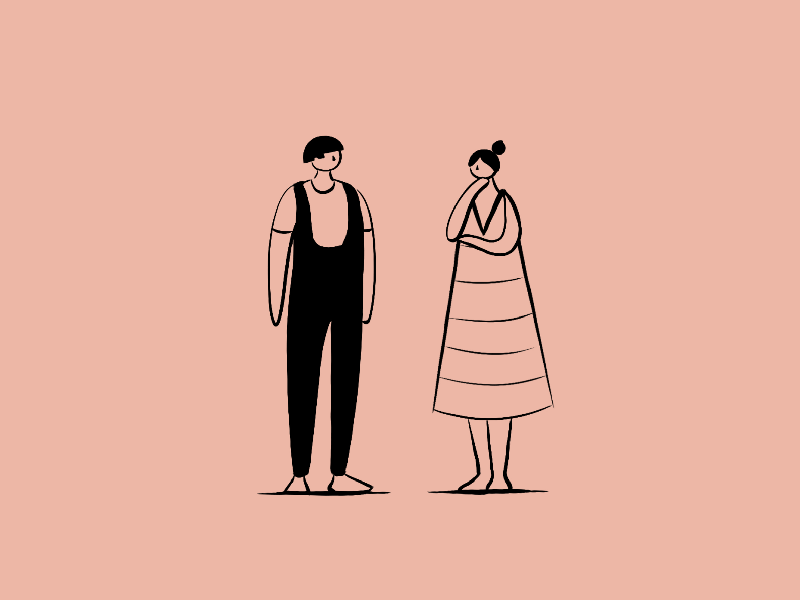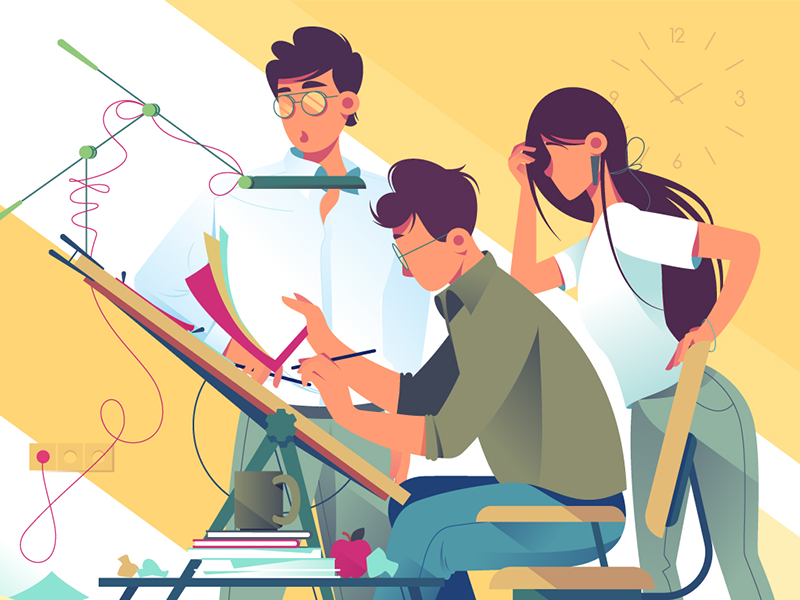Best Tools To Design Ui Quora
Before I begin to talk about my interview experience, I would like to make a list of the companies that I interviewed with and how all those went. Since I got a ton of rejection emails, I only listed out companies that I interviewed with but didn't get through. Since I signed NDAs, I am not able to share the detailed interviews with you. However, I will share my experience with questions that you should be prepared to answer during your interviews!
Offer: Salesforce, Adobe, Microsoft
Rejection: Mastercard, Punchcut, Cisco, ByteDance, Google
Declined: Facebook, Quora, VMware, Twitter, SAP
In Progress: LinkedIn, Tencent
As an engineering s tudent, I am always guided by formulas. I will share my "formulas" of how I cracked those interviews. (Disclaimer: You don't have to agree with or use any of them. But be sure to tell YOUR story!!)

Q1: How you got into design?
Starting in October, I woke up every day with rejection emails in my inbox. I was discouraged and frustrated. Since I had a bachelor's degree in math-computer science, I always had to face this question during my interviews. For those who had transferred from a different field to interaction design/HCI, which I believe most of you did, you need to ask yourself the true reason and be prepared to tell your own story.
My Framework
I treated my previous experience as pieces of puzzles. I only drew out the pieces that I need most. Be sure to subtract or add any details to tell a completed and targeted story. For example, if you are interviewing with Quora, which will expect you to have a tech background/experience, you may want to talk about how you implemented your project in detail. (The framework, process, programming languages… etc.)
- Background Info
- My Contribution
- Difficulties/Frustrations/Findings
- Takeaways
My Answer
I was the sole designer for my senior software engineer project with another nine engineers. We were asked to deliver a fully functional app within 10 weeks. We decided to make a time management Android app for students who were struggling to remember deadlines from five different course websites. We will use a python script to craw the schedule from those websites and generated a task list for the students.
I never encountered the term interaction design before as an engineer. Thus I had difficulties going through the entire design process and performed good data synthesis. However, during the process, I found it was extremely interesting to talk with potential users about our ideas and learned about their stories. Also, I found pushing pixels and building information architecture of an app drew my attention other than figuring out the best data structure or the fastest algorithm. Therefore, after the project, I decided to give it a try. I declared a minor in design and continued my exploration here at CCA.
If the interviewer asked about one of my failures, I would add this:
- Failure
- Solution (How I ACTUALLY or TRIED to fix it)
- Takeaways
A day before the final presentation, we had every part of our project done and we wanted to put them together. However, we realized that we didn't know how to run the python script via our android app. That was a fatal problem for us as the automation process was one of our best features. After staying up the whole night, we found a way to teach our users to use the command line to run the script first, and then use the refresh button in the app to generate the task list. Although we were able to keep our main feature, it was a huge scarification to our user experience. Team synchronization is always the key. Therefore, I always check with my group members to make sure everything is going smoothly after this project.

Q2: Can you show me around your portfolio?
A grand tour question! Try to be concise while summarizing the essence of your portfolio. Time yourself when you are practicing. Try not to make it too long for your interviewer as you will dive into one or two of your proudest projects later.
My Framework
- Project Name
- My Role/Contribution
- Bitter&Sweet
Q3: Tell me one of your proudest projects?
Here is the question. It can be asked in different ways! It's your time to show your strength (and weakness, maybe) as a designer! However, there is one thing that you want to avoid, don't focus solely on your design process. I read this somewhere that most of our processes are similar or the same. Therefore, you don't want to spend most of your time talking about how you go from research to prototype, prototype to design, and iterations.
My Framework
- Project Name & Goal
- My Role/Contribution
- The problem that I/we noticed
- The insights from my/our research
- How I synthesized previous findings that guided the next steps
- My Design Toolbox (Pair Design, Peer Critique, Test with Users… etc.)
- Recap of Problems + Final Solution
- *What I learned from this project*
My Answer
Well, I took this part out as I want to encourage you to practice the framework with your own projects. Try it out! :)
I personally think the last part about project reflection was the most important thing that I wanted to mention during the project walkthrough. The answer tells the interviewer about me as a designer, how I work with other people, and my potential to grow.

Q4: What is your weakness as a designer?
Your interviewer is throwing a curveball at you. Are you gonna tell them about your worst team project experience?
Please do not start with…
- I cannot work with other people
- I can't work with engineers as I don't know how to write code
- I don't like AR/VR as they are hard to learn
- I can't make physical prototypes as I never learned it before
- My visual skill is bad
Instead, you may say…
- At first, it was challenging to work in a team setting. However, I arranged daily meetings to ensure everyone is synced / (how you resolve the dilemma)
- As to work with engineers in the team, I took online coding courses/attended a hackathon/ (your effort) to learn their languages.
- While I never experienced AR/VR before, I am willing to step out of my comfort zone and (your plans)
- I was not able to experience the process to make physical prototypes. Therefore, I decided to get a degree/ask help from my industrial design friends/(your plans)
- I didn't learn much about visual design previously. But I tried to attend 100-days design challenge/online visual courses/(your effort)

Q5: Let's do an app critique.
THIS IS HARD
I felt out of words when I was asked to critique the desktop version of Google Maps. I didn't use it frequently. I was not sure about the primary user and use cases of it. I was doomed!!
Yes, I got a rejection because of failing the app critique part. Then I practiced with my peers and gained feedback from them. It was pretty helpful if you can pair up with another designer.
My Framework
- State the goal of the app
- Do a comparison between the app and similar experiences
- Find primary users + use cases
- Dive into the flow of the primary use case
- Point out the pros and cons
- *How would I redesign it* (Optional but they will ask you eventually)
- How would I do to improve the meaningfulness and delightfulness
Best Tools To Design Ui Quora
Source: https://uxdesign.cc/what-i-learned-from-my-design-interviews-2a61212bf8a7
Posted by: brightonguttend.blogspot.com

0 Response to "Best Tools To Design Ui Quora"
Post a Comment